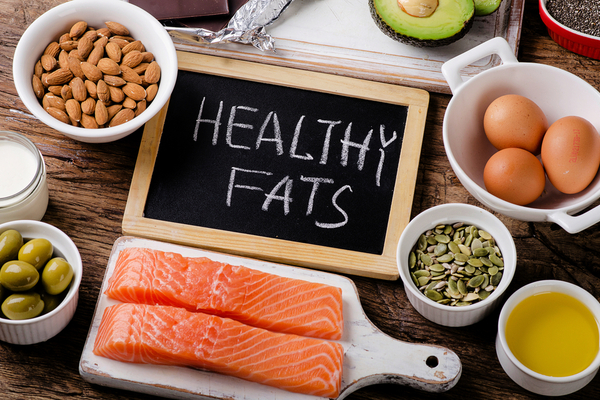Eating too much fat can raise cholesterol, clog arteries, and contribute to the risk of stroke and other forms of heart disease — not to mention obesity, diabetes, cancer and a host of other conditions. However, as CNN reports, it’s the type of fat, not the amount, that appears to be the culprit when it comes to stroke. Eating plant-based fats lowers stroke risk, according to a study presentation given Monday at the American Heart Association Scientific Sessions 2021.
The study analyzed 27 years of data from nearly 120,000 nurses and health care professionals who are part of two of the longest running nutritional studies in the United States: the Nurses’ Health Study and the Health Professionals Follow-Up Study. And the study, which has not yet been peer-reviewed, found people who ate the most vegetable-based fats were 12% less likely to experience a stroke compared to those who ate the least. On the flip side, people who ate the highest levels of animal-based saturated fat were 16% more likely to experience a stroke than those who ate the least fat of that kind.
“Our findings indicate the type of fat and different food sources of fat are more important than the total amount of dietary fat in the prevention of cardiovascular disease including stroke,” said lead author Fenglei Wang, a postdoctoral fellow in the department of nutrition at Harvard’s T.H. Chan School of Public Health, in a statement.
Humans need fat to survive. Fats are an essential element that help your body absorb vitamins from foods, keep hormones functioning, build cells, give you energy and keep you warm. Vegetable oils, such as extra-virgin olive oil, sunflower oil and soybean oil are considered “healthy fats.” But it’s the unsaturated fats that come from vegetables, nuts and fatty fish that can lower your cholesterol level and help keep you healthy.
“What are the major sources of plant or vegetable fats?” asked Alice Lichtenstein, director and senior scientist at the Cardiovascular Nutrition Laboratory at Tufts University in Boston. “Those would be the liquid vegetable oils, things like corn oil, safflower oil, sunflower oil, soybean oil, which are high in polyunsaturated fatty acids, and then oils like canola oil and olive oil, which are high in monounsaturated fatty acids,” said Lichtenstein in a statement. She was not involved in the study. “Those are the types of oils that should be used for food preparation,” she added.
Saturated and trans fats are generally not as healthy. Saturated fats typically come from red and processed meats, and tend to be solid at room temperature. In the study, those included beef, pork, lamb, bacon, sausage, bologna, hot dogs, salami and other processed meats. “A moderate reduction in red and processed meat consumption within a healthy eating pattern can reduce total mortality by 13%, heart disease mortality by 14%, cancer mortality by 11% and type 2 diabetes risk by 24%,” said Dr. Frank Hu, chair of the nutrition department at the Harvard T.H. Chan School of Public Health said in an interview with CNN. Hu is one of the authors of the stroke study.
Interestingly, dairy fat, including cheese, butter, milk, ice cream and cream, was not associated with a higher risk of stroke, the study found. There has been an ongoing debate among nutrition researchers as to the role of dairy in the diet — it’s a major source of calcium. The United States Department of Agriculture’s 2020-2025 Dietary Guidelines for Americans calls for three servings of dairy each day, preferably low- and no-fat versions.
—
Photo Credit: bitt24 / Shutterstock.com
Photo Credit: bitt24 / Shutterstock.com
